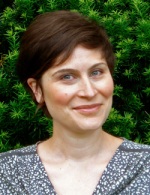Lully: Glory without Love?
Scenes from the operas and comedy ballets of Jean-Baptiste Lully
Saturday, April 21, & Sunday, April 22, at 4:00 pm
Auer Hall (Located on the second floor of the Simon Music Center, 200 S. Jordan Ave.)

A rehearsal from Lully: Glory without Love?
A Co-production of IU Baroque Orchestra, Pro Arte Singers, IU Ballet Department, and the Early Music Institute
The delights of Jean-Baptiste Lully’s magical dances, airs, recitatives and triumphant marches will be on display in Auer Hall this weekend as the Early Music Institute, Jacobs School Ballet Department and Pro Arte Singers combine forces to present Lully: Glory Without Love?
With an original script by guest actor Mace Perlman, baroque choreography by guest stage director Catherine Turocy and music direction by Nigel North, the program weaves together scenes chosen from the most poignant moments in the composer’s operas and comedy-ballets Psyché, Alceste, Armide, Atys, Isis, Le Bourgeois Gentilhomme and Bellérophon.
For this production, the Early Music Institute has brought together two outside professionals to work with students on artistic expression specific to the French seventeenth century.

Catherine Turocy, leading choreographer, reconstructor, and stage director in 17th-18th century period performance. | Photo by Beatriz Schiller.
Choreographer and period movement expert Turocy, director of the New York Baroque Dance Company, has worked with ballet students and singers in the art of early French dance, gesture and pantomime. She has also provided a number of elaborate period costumes, which will be used by dancers during this production.
By weaving Lully’s music into one moving story about the impossible tension between love and glory, Perlman has created a staging for the production, with inspiration from the diverse masks of the commedia dell’arte. His collection of Venetian commedia masks will also be featured.
Lully, love and power are three key words that combine to create Lully: Glory Without Love? From the allegory of Glory herself to such diverse characters as Armida, Renaud, Fury and Italian and Spanish lovers; from suicidal scenes, dream scenes, triumphant marches and the wonders of Lully’s passacaille, this production will present what Perlman has called the “many eyes of Lully’s life and art.”
With talented student soloists, a full baroque orchestra, the choral strengths of the Pro Arte Singers, the masterful baroque choreography of Turocy and the commedia dell’arte-inspired staging of Perlman, audiences will be offered a unique and powerful experience that captures the essence of the French baroque.
Nigel North, Music Director
Stage Direction by Catherine Turocy and Mace Perlman
Choreography by Catherine Turocy
Spoken Narration by Mace Perlman
Production Concept, Alison Calhoun
Nigel North, music director
Mace Perlman, stage director and writer/text and language coach/actor
Catherine Turocy, stage director/choreographer/period movement coach
Alison Calhoun, production concept, French diction coach
Paul Elliott Director, Early Music Institute, vocal coach
William Jon Gray, Director, Pro Arte Singers
Juan Carlos Zamudio, Assistant Director, Pro Arte Singers
Sarah Edgar, assistant choreographer
Rachel Fernandez, stage manager
Alison Calhoun is Assistant Professor of French in IU’s Department of French and Italian. Her research focuses on the cultural and intellectual history of the Renaissance and extends to the 17th and 18th centuries to study genre, reception (theater), and morality. Her approach is interdisciplinary (philosophy and literature, music and literature) and often fits into the categories of history of the book, reception theory, and genre studies. Her forthcoming book, A Transverse Self: Montaigne and the Lives of the Philosophers, situates Montaigne and Diogenes Laertius in the history of life writing in the Renaissance and Classical Age in France.
In Calhoun’s latest research project, Motion and Emotion in Early Modern French Drama, she explores the reading, staging and stagecraft of composite drama (court ballet, machine plays, comedy-ballets, and opera). With key authors like Balthasar de Beaujoyeulx, Honorat de Bueil de Racan, Honoré D’Urfé, Jean Mairet, Pierre Corneille, Isaac de Benserade and Philippe Quinault, she aims to show that the libretto, parallel to and concurrently with the novel, trained readers not only to imagine greater fictional possibilities than before, but also to feel (sometimes to practice) more diverse emotions.
